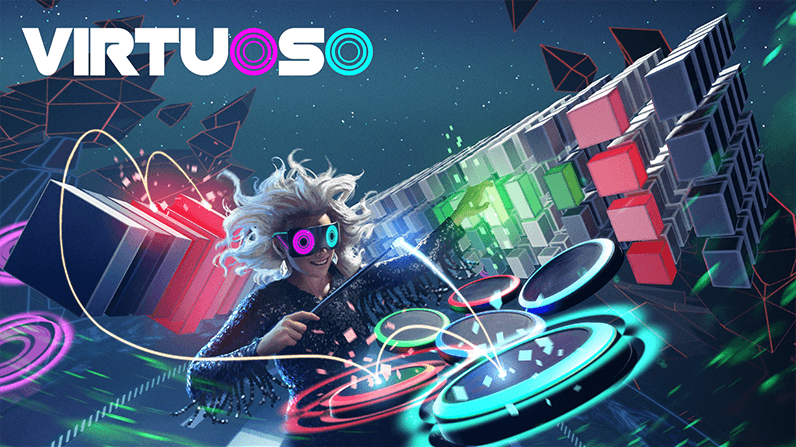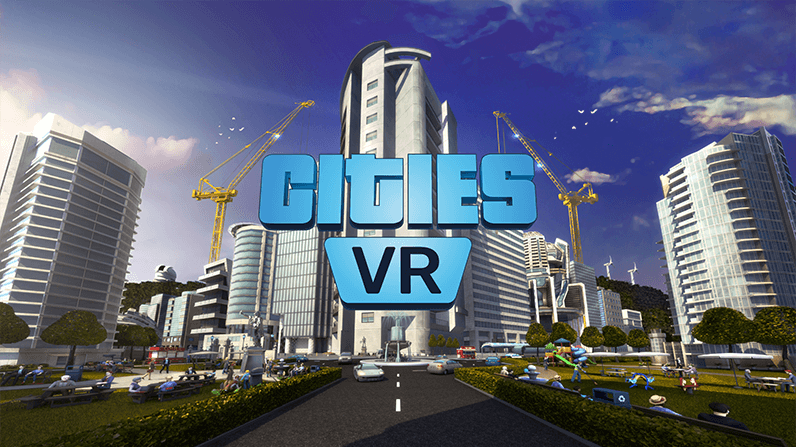Fast Travel Games: Getting VR Publishing Right

Right now, in 2022, the opportunity for game devs in virtual reality is tremendous. But once you’ve made your VR game you need to get it published. Before we look at that process, however, it’s worth framing the opportunity. So let’s rewind back in time a little.
In the years that followed 2016’s sensationally popular Oculus Rift Kickstarter, most of the conversation about VR was framed by hype. A lot was promised and predicted, but it didn’t always have too much to do with actual reality.
Now the fickle hype spotlight has moved on from its obsession with VR. At the very same time, VR has been booming. Meta’s Quest 2 headset – which shares a direct lineage with the original Rift – sold a truly remarkable 8.7 million units, or twice the number of headsets shifted in the previous year. Eager headset owners also bought so many games and apps in the Meta Quest store that revenues there quadrupled in the three years up to February 2022. Elsewhere mobile VR continues to boom, and following the PSVR’s success Sony is working on a follow up PlayStation headset.
So while today there might not be as many eager headlines about headsets, the opportunity for game developers is more significant than ever before.
“There's so much investing happening into VR right now, it's clearly here to stay,” says Patrick Liu, Head of Publishing at Fast Travel Games, when he considers the accelerating success of VR. “We’re seeing a lot of investment from Meta and Sony, and Apple is certainly doing something interesting in the AR and mixed reality spaces. And as more players invest in VR, there is a wonderful appetite for high quality VR games – so the opportunity is really out there for game developers working in VR.”
Now is The Time
Fast Travel Games was founded the very same year as that infamous Rift kickstarter. With roots as a VR developer who self-published their own games, the company is now moving to also stand as a publisher of third party VR titles. And having been committed to VR throughout the highs and lows of the hype cycle, the team there have learned a great deal about getting publishing of virtual reality content right. In fact, Liu’s own experience creating games and related content goes back much further, with him initially involved in Sweden's iconic and wildly creative demoscene back in the 1990s. Later Liu would serve the likes of Starbreeze, DICE and Rovio. In other words, he really knows his stuff when it comes to building, launching, and running successful games.
“Now is a great time to release a VR game,” Liu enthuses. “The whole ecosystem is growing, from technology and better understanding of the medium, to the investment and publishing side of things. That benefits everyone involved, and creates this virtuous circle of increased potential and success.”

So how does Liu see VR evolving in the next three-to-fives years?
“Right now VR is where console was 10-to-15 years ago,” Liu offers. “Production values are climbing, and conventions around genres and best practice for design are becoming really established and valid. And yet it’s a bit of a sweet spot, because there’s still so many opportunities for innovation and truly new ideas that really grab players’ attention.
“We’re also seeing a boom in the variety of quality platforms globally. Quest will absolutely keep growing with all that Meta is putting into it. But there are also a lot of really promising headsets emerging from China, and some of the best will come West over time.
Interestingly, Liu also sees that VR might well follow the same route as console and particularly mobile in terms of the evolution of its revenue models. For now, premium games reign supreme where VR is concerned, and those paid-for titles are likely to dominate for some time. But as a more mainstream, varied audience inevitably embraces VR, it’s likely that more casually-orientated games will increase in prominence – in tandem with a rise in free-to-play, ad-funded and IAP-based titles. So the opportunity for game makers is broadening, but for now it is likely that premium experiences aimed at mid-core and hardcore gamers that will likely do best.
Virtually Unique
Today, of course, we are in an era where self-publishing is an entirely reasonable route for a developer to go down. And if you wanted to publish your own VR game, you very much could. But as Liu points out, while there are plenty of parallels with console publishing and VR publishing, the latter is certainly distinct. The ways you consider what concepts will succeed, who your audience is, what the competition is like, and how the press and influencers cover experiences distinctly all have a little more complexity and a lot more nuance when it comes to VR.
“Even if you’re experienced with game publishing generally, there’s a lot to learn that’s specific to VR publishing,” Liu explains. “It’s been a long journey for us, founded by our experience of being a VR developer. Over time we’ve built great relationships with platform holders, media outlets and influencers, and people on the business side of things. We’ve also learned a lot from putting our own VR titles out there. And that’s really what you get from a publisher – the experience in all that other stuff away from game design and dev. Things like PR and marketing and actually getting games on stores and featured and so on. It’s great that people can self-publish, but with VR in particular there’s so much value in the collaborative process that is working with a publisher.”

That undertaking of gaining experience and learning how to make a VR game a VR hit is ongoing at Fast Travel Games. The team are incredibly open minded to the genres they work with, the types of studio and team they support, and the audiences targeted. Liu is even open to considering games of any state of completion, and the publisher makes decisions based on the team as well as the title itself. For now the focus is on Quest 2, PSVR2 and PCVR (meaning the Index, Vive and so on).
Few know as much about VR games publishing as Fast Travel – but nobody yet knows everything, so embracing an exploratory, open mindset is key to establishing yourself in VR right now.
Relationship Building
Whether you go with self-publishing your VR title or looking to work with a publisher, there are some key things to consider.
“You need to start by understanding what is still a complicated and relatively nascent market,” Liu recommends. “You’ll want a lot of people to want to play your game if you are going to be successful, so really think about how popular your idea will be in terms of tens of thousands of people – and hopefully many more than that. Try not to get distracted by how much you personally like your core game concept. It’s important that you put passion into an idea you believe in, for sure, but success is about more than personal preference. You might need to change your cherished idea for it to work as a VR release that serves a wider variety of distinct players, for example. And right now while VR is big and growing, it’s still a niche, limited audience compared to gaming generally. So you want your idea to appeal to as many people across that niche as possible.
“You also need to develop relationships with platform holders and so on as early as possible. The same is true if you go with partnering with a publisher. It’s never too soon to understand what you need to do to be successful. Also think carefully about when you release, and think about the marketing beats that will take you up to that point. That’s also something you need to have in place – or have your publisher help you with – early in the production process. Everything needs to reach a crescendo when the right audience is in the right place, and undistracted by a high-profile alternative or competitor game.”
Quality is now becoming critical to VR, and particularly quality of interaction. There’s little room to get away with the kind of lo-fi charm that might actually be a selling point in some indie and mobile arenas. In the early years of VR, as developers explored what was possible with the form and how to overcome the likes of simulation sickness, it was understandable that not every game would be perfect. Consumers learned that early VR games could be a little uncomfortable – and as such developed an appetite for comfortable, highly polished, elegantly interactive VR games. Fortunately, developers and the wider games industry have collectively built up a shared rulebook of best practice for VR design that makes crafting a comfortable, polished experience much more achievable than in the early days that followed the Rift Kickstarter.
But quality doesn't always guarantee success. Many developers have highly rated VR games but disappointing sales. It's not just about releasing a great game, which is where publisher insights can come in helpful. “There are also some intricacies unique to publishing VR games that we’ve had to watch for many years to fully understand – and we’re always still learning, because you have to think like that with VR,” says Liu. “We’ve seen, for example, that the correlation between pricing and what reviews scores users leave for VR games is quite distinct. There’s a lot to understand there. And we’ve seen that user review scores are especially important in the VR space.”
Ultimately, for game developers VR presents a striking opportunity. Now is the perfect time to make your VR game a defining success, and there’s a sizable, eager market waiting for those great ideas you and your team have. Publishing remains an entity that is both distinct from and deeply entangled with VR game development. There’s a lot you can do alone today – but at the same time, all of the very specific factors you need to consider in terms of VR publishing make expert insight powerfully helpful. Collaborating with a publisher can fuel tremendous additional success when it comes to a still emerging sector like VR.
And unless you’re a team of one, you’ll be making games collaboratively anyway – bringing together artists, designs, coders, audio specialists, and many more. You can think of adding a VR publisher to that list as something that simply extends the wonderful collaborative spirit that powers the creation of successful games.